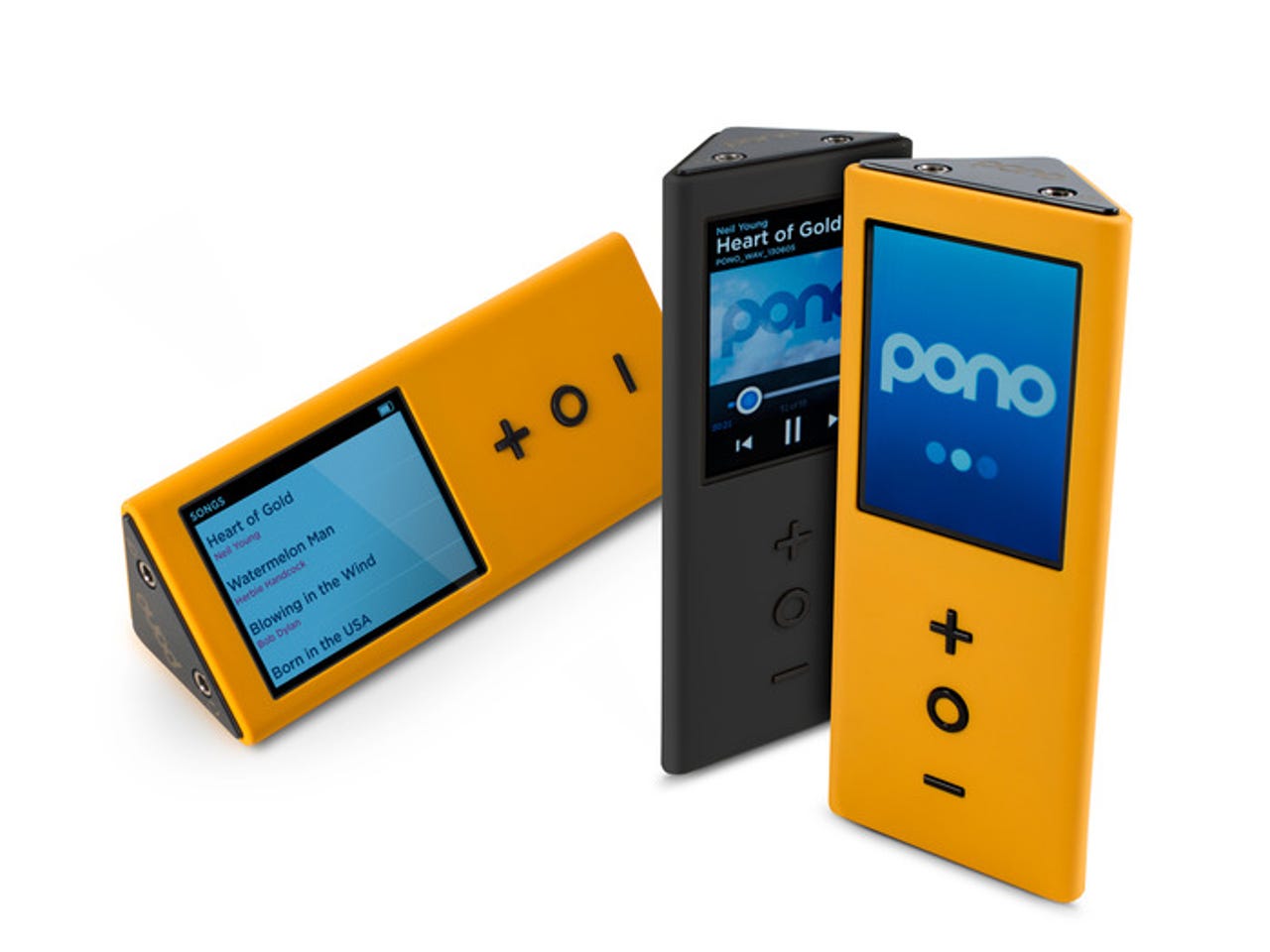Neil Young takes on the establishment with PonoMusic


Neil Young thinks that the music most of us listen to is junk, even his own.
No, it's not your secret Miley Cyrus playlist, it's the low quality of today's compressed audio formats that makes the musician cringe. "Pono" is Hawaiian for righteous and Young's goal with the ambitious project is to honor the artist's intention, and the soul of music.
Young's PonoMusic project launched on KickStarter yesterday and rocketed past its $800,000 goal in less than 24 hours. Backers are able to order the innovative player in either yellow (gold?) or black for $300, or chrome for $400, and the first run is expected to ship in October 2014.
PonoMusic consists of two components: The PonoPlayer hardware which is shaped like a Toblerone chocolate bar and includes 64GB of internal memory and a microSD slot, and a companion music store that will sell high-resolution music that can be downloaded to the player.
The PonoMusic Store will offer tracks in FLAC (Free Lossless Audio Codec) audio format although the PonoPlayer will play most popular high-resolution music formats from other sources and supports the following formats:
- CD lossless quality recordings: 1411 kbps (44.1 kHz/16 bit) FLAC files
- High-resolution recordings: 2304 kbps (48 kHz/24 bit) FLAC files
- Higher-resolution recordings: 4608 kbps (96 kHz/24 bit) FLAC files
- Ultra-high resolution recordings: 9216 kbps (192 kHz/24 bit) FLAC files
Young first introduced PonoMusic to the public in 2002 on Late Night with David Letterman (video), complaining that today's compressed CD and MP3 formats are "dummied down." At the time, Young mentioned that he was working on a content deal with Sony Music and that he had Warner Brothers on board.
Young told Wired in September 2013 that he had the support of three major labels for the music service. But, sister site CNET speculates that customers will also be able to use other services like HDTracks. Other stores that sell lossless music include LiveDownloads.com and eClassical.com.
Featured
Apple is likely paying close attention to PonoMusic, but should it acquire the music startup?
One line of thinking is that Apple could eventually acquire, miniaturize and incorporate Pono technology into its own devices, but it would be a difficult task. The PonoPlayer is the size and shape that it is because it allowed engineers to use larger audio components and to separate them far enough apart to prevent electrical interference between the various subsystems. The shape also allowed engineers to use a more efficient cylindrical battery according to the Kickstarter project.
Another possibility is that Apple could market a dedicated Pono-like player to audiophiles as "iPod Pro" or "iPod studio," perhaps under a licensing deal with Young. At a minimum, Apple should sell music in lossless formats, instead of just the lossy AAC format it offers today.
Apple's not ignoring lossless audio entirely though. It introduced the Apple Lossless Audio Codec (ALAC) in 2004 and open-sourced it 2011. ALAC is similar to other lossless codecs (like FLAC and Shorten) and, although all current iPhones and iPads can play ALAC–encoded files, they're not sold via iTunes and are thus limited to audiophiles encoding their own music.
What do you think about PonoMusic and lossless audio in general?